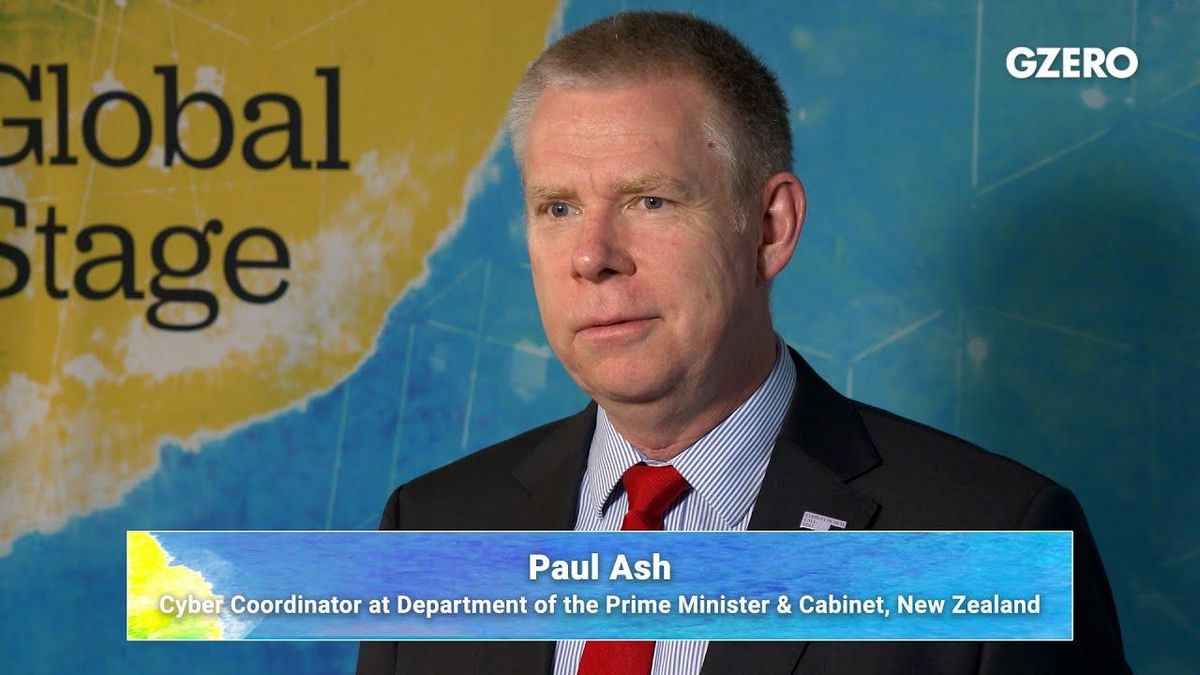The Christchurch Call to Action, a political summit initiated by New Zealand’s Prime Minister Jacinda Ardern, gathered during the UN’s General Assembly to renew its commitment to creating a safer digital world.
The Summit was formed in 2019 following a massive terror attack in Christchurch that left 51 dead and dozens wounded. The terrorist used social media to livestream the murderous rampage for several minutes, and the video was viewed by thousands before it was removed from the internet.
In an interview with GZERO Media, Paul Ash, PM Ardern’s Special Representative on Cyber and Digital, detailed the key issues discussed in the meeting. “The first, how do we respond to crises and keep people safe when the internet is abused by terrorists and violent extremists? Second, how do we think about prevention? Ash continued, “The third thing we looked at in our summit meeting was the question of how the Christchurch Call can remain current. How do we future-proof it as the internet changes into a more immersive environment?”
The Summit is aimed at combatting extremism and hate online, and, in particular, gender-based hatred and harassment and attacks on the LGBTQI communities.
Ash told GZERO that to ensure a free, open, and safe Internet of the future the Summit leaders also need to focus on emerging technologies that may create larger risks for people and societies.
“We've got our work cut out, as we think about the next eight years, to ensure that we build safety into that model, that we protect against cybersecurity attacks, and that we put people and citizens first in that process,” Ash said.

















